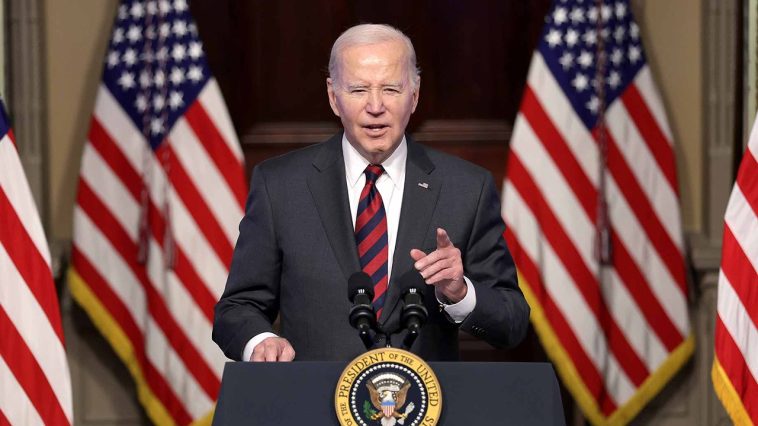LISTEN HERE:
A recent report released on Wednesday paints a stark image of the economic conditions faced by the American people in current times. It reveals that an average family in the United States is expected to shell out approximately $11,434 more each year on basic needs compared to previous years. Inflation, while slightly lower than the peak of the past 40 years experienced last year, is still a burden, reducing the purchasing power of the American household.
Data indicates that from the start of 2021, inflation has been responsible for a surge in pricing – 17 percent, to be precise. Conversely, hourly wages over the same time have seen a lesser increase of 13.6 percent. This mismatch between earnings and living costs has led to an escalatory effect on several segments such as food, housing, transportation, and energy.
The monetary stress is particularly palpable among middle and lower-income families who are grappling with living paycheck to paycheck. An alarming indicator is the rise of credit card debt to a record high, surpassing $930 billion, a dire reflection of the current economic climate.
A detailed assessment by the U.S. Senate Joint Economic Committee uncovers disparities across the states. Colorado is witnessing the highest overheads for a family endeavoring to maintain their living standard at par with 2021, needing an excess of $14,995 annually. On the other end of the spectrum is Arkansas, with an additional expenditure of just under $8,528 per year.
There is a wide variation in the additional financial burden across other key states. To retain their lifestyle, families in these states Washington are being hit hard. For example, Texas sees an additional annual requirement of $11,170, while in California it’s an even more substantial $13,282. New York and Florida track closely with figures of $11,103 and $12,939 respectively.
Upon release of this report, there has been a flurry of criticism from the Republican side of the aisle, expressing concern over the economic policies in force. The argument being made is that these policies have indirectly fueled the high inflation, which is putting a strain on the regular American.
House Speaker Mike Johnson voiced his perception via a social media platform, stating, ‘The arrival of the current administration has necessitated an extra annual expenditure of $11,400 just to secure basic daily needs.’ He continued by suggesting a move away from current economic strategies.
In a similar vein, Senator Bill Cassidy expressed his sentiments, stating, ‘In these conditions, it can be confidently said that the economic strategies in place are not delivering. The basics have become a struggle for the people.’
According to data from a recent Gallup poll, there is a significant lack of confidence in the economy among the citizens. A staggering 47 percent believe that the economy is in bad shape, while only 33 percent believe it to be fair, 17 percent believe it’s good, and a minuscule two percent consider it to be excellent.
A pessimistic outlook on the future weighs heavily on the populace, with 74 percent feeling the economy will further deteriorate. More than a third pinpoint the high cost of living as the most troubling financial concern they face.
These tough economic times are being felt all over, but those hit hardest are often those in the middle and lower income brackets. With each day, it becomes increasingly clear that the pressures of inflation are weighing down on these families.
The economic landscape isn’t only affecting personal finances, but also the political future of the nation’s leaders. If the financial circumstances continue downward, the ramifications could be far-reaching and penetrate the political landscape, potentially impacting upcoming elections.
The administration’s ability to address these challenges and chart a course for recovery would not only determine the future wellbeing of American families but also have a decisive impact on its own political trajectory.
Ultimately, the nationwide impact of the current economic situation is one of concern and uncertainty. As prices rise and wages stagnate, there’s a psychological toll that is likely just as devasting as the financial one.
Therefore, it is fair to argue that the economic tenets currently in play necessitate revisitation and reevaluation. If not addressed promptly, the overall financial wellness of the nation could be at stake, with economic disparities potentially widening further. And for those at the helm, the prospects of reelection might well and truly be drifting away.



